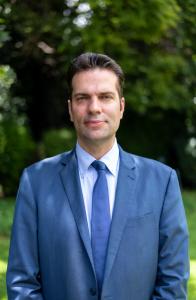These days quite a few South Africans wonder what their former president and Nobel Peace Prize winner, Nelson Mandela, would say about the ANC government's position on the Russian invasion of Ukraine. In 1993, the South African icon declared that "‘Human rights will be the light that guides our foreign affairs". Three decades on there is little sign of this. On the contrary, instead of emphasizing respect for human rights, the territorial integrity of Ukraine, or even respect for international law, a high-level delegation of ANC officials and mandate holders recently made a visit to Moscow to cement relations with Putin's United Russia party.
Ideological foreign policy
This event shows once again how much South Africa’s foreign policy is shaped by ideology: Above all, the enduring sympathy for the former USSR - justified by the support of anti-apartheid activists at the time - plays a role. The fact that a large number of former liberation fighters were trained in Odessa (i.e. on the territory of today's Ukraine!) is completely ignored. Shortly after the invasion, the South African foreign minister condemned it, but was apparently then immediately harshly reprimanded by the president himself and amended her stance to merely to calling for mediation. More recently, she called criticism of Russia by the international community "infantile". Political observers also speculate about the extent to which large donations to the ANC by a Russian oligarch close to the Kremlin influences the ruling party's position on the war.
The fact is: Since the start of the invasion, the Rainbow Nation has abstained from all votes in the UN General Assembly that dealt with the Russian war of aggression against Ukraine. If not already beforehand, certainly since the visit of Russian Foreign Minister Sergei Lavrov to Pretoria at the end of January, as well as the ten-day naval maneuver jointly conducted with Russia and China off the coast of South Africa, it is no longer possible to speak of a neutral position, according to experts - even if this still corresponds to the official position of the South African government.
There is no doubt that Lavrov's visit also served to expand economic relations between the two countries. However, one should mention that Russia - in contrast to the USA and Europe - is not a significant trading partner to South Africa. South Africa's assumption of the (rotating) BRICS chairmanship (an economic alliance of emerging economies, which, in addition to South Africa and Russia, also includes China, Brazil and India) at the beginning of this year was certainly another reason for meeting Putin's foreign minister.
From a geopolitical point of view, South Africa wants to show that it is pursuing an independent foreign policy that promotes a multipolar world, in line with its rejection of an alleged hegemony of the West. However, the issue of how "respect for human rights" can be completely ignored at this point is shown to be incomprehensible even to ANC supporters, who clearly side with the attacked Ukraine in a recent survey conducted by the renowned Brenthurst Foundation.
Constitutional crisis not impossible
The BRICS Summit to be held in Durban, South Africa, in August, with the participation of all heads of state of the alliance, could put the South African government in a real dilemma - and furthermore plunge the country into a constitutional crisis. If Putin, who is the subject of an international arrest warrant issued by the International Criminal Court, decides to set foot on South African soil, he would have to be arrested on the spot. South Africa is a signatory to the Rome Statute and would therefore have to act accordingly. However, no-one believes that the South African government would execute such an arrest.
What to do? South Africa could withdraw from the Statute of the Criminal Court beforehand. This was even publicly announced by the ANC, but a short time later it was declared to be a "communication error" and withdrawn. There is no doubt that a possible withdrawal would not go down quietly nationally and internationally. Moreover, it would only take effect legally after a period of twelve months and would therefore not be valid at the summit in August.
While the South African government seems to have lost its way in its pro-Kremlin policy, a large number of South African opposition parties, as well as large parts of civil society and major churches, have clearly positioned themselves against Russian aggression. Which brings us back to Nelson Mandela, who took a stand against obvious injustices throughout his life.
Gregor Jaecke is the head of the Konrad Adenauer Foundation's South Africa office since January 2023. This article was originally published in the Neue Zürcher Zeitung on 03.05.2023 and translated.



